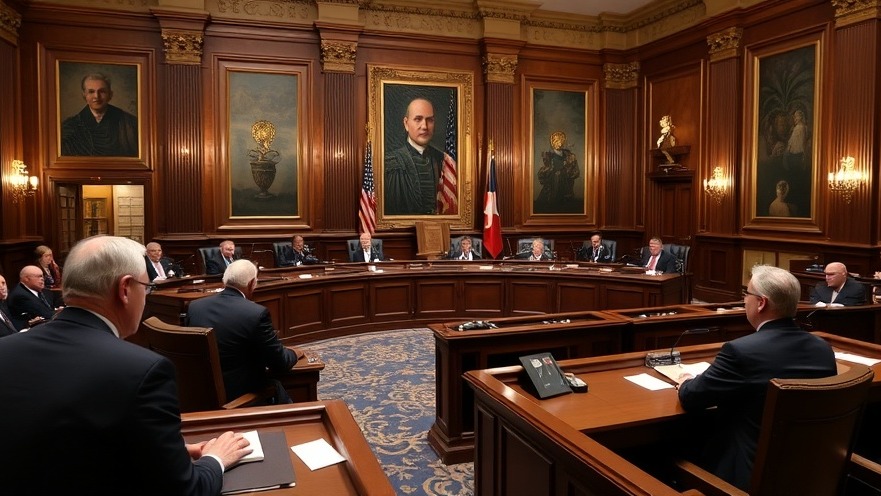
Texas Lawmakers Step Up to End Child Marriage Loopholes
Lawmakers in Texas are poised to make significant changes to child marriage laws as they begin to address a loophole that has persisted since 2017. While the goal of the legislature has been to end most child marriages, the case of emancipated minors aged 16 and 17 has kept this issue alive.
A Closer Look at House Bill 168
On the table is House Bill 168, spearheaded by Representative Jon Rosenthal, a Houston Democrat, aiming to close this loophole. If enacted, the bill would not only prohibit all minors from getting married but would also nullify existing marriage licenses for minors, including those who were married elsewhere and have since moved to Texas. The proposed legislation has already sparked debates in the Texas House, with votes expected soon.
Rationale Behind Changing Child Marriage Laws
Difficulty in obtaining accurate data on the frequency of child marriages since the 2017 legislative overhaul clouds the issue. However, significant progress can be observed, as the number of marriages involving minors sharply declined from over 200 in 2016 to less than a dozen in 2021. Rosenthal's focus centers on the troubling cases where older men marry young girls, with a stark example being the marriage of 40- to 50-year-old men to 16- or 17-year-olds.
Pushback from Advocates and Legal Concerns
Not everyone is on board with the proposed legislation. Some opponents argue that allowing for legal avenues for young people to marry is essential, particularly for teen parents. A legal expert has raised concerns that nullifying out-of-state marriages could violate the U.S. Constitution. Yet, advocates like the Tahirih Justice Center reiterate the necessity of abolishing child marriage completely.
The Lifelong Consequences of Child Marriage
The implications of child marriage extend far beyond the relationship itself. Victims often find themselves facing long-term challenges, such as increased likelihood of dropping out of school, greater risks of intimate partner violence, and lower lifetime earnings. A report from Child USA highlights that girls who marry before the age of 19 are 50% more likely to leave school compared to their unmarried peers.
Historical Context: Changes Since 2017
Before the 2017 legislative changes, child marriage laws in Texas were relatively lax. The new law mandated that minors must be emancipated before entering marriage. This shift aimed to protect young individuals from predatory situations while significantly reducing the instances of child marriages. Despite the legislative progress, the recent discussions reveal that more measures are needed to fully eliminate these practices.
Future Trends: Looking Ahead
As discussions around this bill unfold, Texas stands at a crossroads where the potential abolition of child marriage could set a precedent. Other states have led the way in banning child marriage, increasing the pressure on Texas lawmakers to follow suit. The anticipated benefits are clear: a sharper focus on safeguarding children and ensuring they can thrive without the burdens and risks that early marriage brings.
Conclusion: A Call to Action
As lawmakers prepare to vote on House Bill 168, it is imperative for Texas residents to stay informed and advocate for measures that protect the well-being of young people. Learning more about proposed legislation and its implications is essential for every Texas constituent. Through active engagement, we can shape a future where children are free from the constraints of early marriage.
 Add Element
Add Element  Add Row
Add Row 



Write A Comment